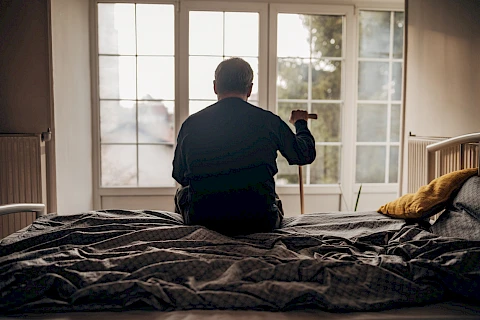
Post-traumatic stress disorder, commonly referred to as PTSD, is a complex and often misunderstood condition in seniors. This lack of understanding can be prevalent among people who may associate it strictly with military service or who might dismiss it altogether.
To mark PTSD Awareness Month, we've decided to confront these misunderstandings head-on. Our goal is to demystify PTSD and shed light on what it truly means to live with this condition. Join us as we take a closer look at these widespread myths about PTSD.
Misconception #1: PTSD Only Affects Military Personnel
One of the most pervasive misconceptions about PTSD in seniors is the belief that it only affects those who have served in the armed forces. Many military veterans do indeed suffer from PTSD. However, trauma can stem from a variety of experiences, not just combat. Seniors, for example, may have had traumatic experiences such as car accidents, natural disasters, or even abusive relationships. Anyone who has experienced life-threatening events, serious injuries, or sexual violence may be at risk for developing this condition.
Misconception #2: PTSD Is a Sign of Weakness
Another common myth about PTSD is that it's a sign of weakness and that individuals can and should simply "shrug off" trauma. This is far from true. PTSD is not a mark of weakness, but a neurological response to traumatic events outside the realm of normal human experience. Just as you wouldn't chastise someone for developing diabetes or heart disease, it's vital to avoid stigmatizing people dealing with PTSD.
Misconception #3: PTSD Symptoms Are Always Visible
Many assume that PTSD symptoms are always visible and drastic, such as flashbacks or heightened startle responses. However, not all symptoms of PTSD are this noticeable. Some people with PTSD might also experience less obvious symptoms. This includes trouble sleeping, negative changes in beliefs and feelings, or feelings of guilt or blame. It's important to understand that someone suffering from PTSD might not always show external signs of their struggle.
Misconception #4: PTSD Can't Affect Seniors
Some people mistakenly believe that seniors are somehow immune to this condition, maybe because they've dealt with life's ups and downs longer. However, seniors are not immune to PTSD. In fact, they may be more susceptible to it, given that they have had more opportunities to experience traumatic events throughout their longer lives. It's important to recognize PTSD as a possible issue among seniors.
Misconception #5: PTSD Is Untreatable
Perhaps one of the most harmful myths is that PTSD is untreatable, a life sentence with no hope of recovery. While it's true that PTSD can be challenging to live with, there are a variety of treatment options available. These include cognitive-behavioral therapy, medication, and support services to help individuals manage their symptoms and improve their quality of life.
Seniors Don't Have to Be Alone
We need to discard these fallacies about PTSD to better understand the truth of what seniors suffering from this condition face. Seniors and their caregivers must have accurate information about PTSD to recognize, address, and treat this disorder effectively.
At Senior Helpers West Los Angeles, we have experience interacting with people living with PTSD and we support them with compassion and understanding. If you or your senior loved one lives in West Los Angeles, Beverly Hills, Westwood, Hollywood, and surrounding areas are dealing with PTSD, you don't have to face it alone. Contact us and let us provide the assistance and resources you need to help you thrive.